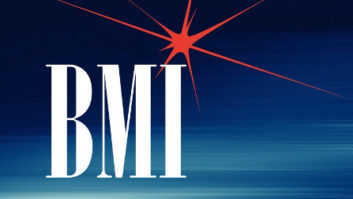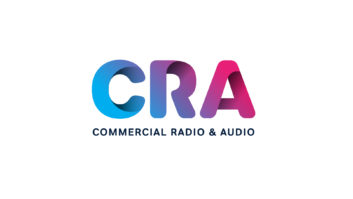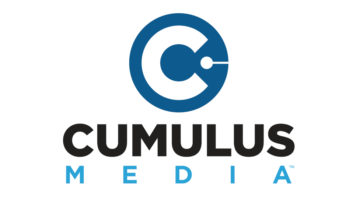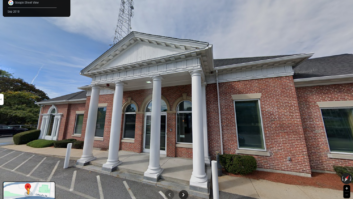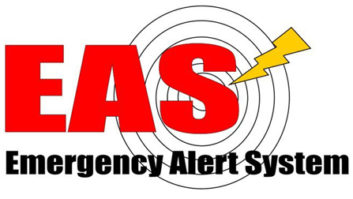Are you Clyde McPhatter? A Member of the Old Geezers? One of The Zucchini Brothers?
If you are, SoundExchange has money for you. But you have to register with the organization by Dec. 15, or the money will be forfeited.
This may sound like a Nigerian e-mail scam, but it’s not. Royalties from digital airplay of sound recordings have been coming in, and SoundExchange, the organization assigned to collect and distribute those royalties, is having trouble locating some or all the members of around 9,000 recording acts who have money coming.
The Digital Performance in Sound Recordings Act of 1995 and the Digital Millennium Copyright Act of 1998 granted royalties to featured performers on sound recordings played via certain digital broadcasts. AM and FM broadcasters do not pay these royalties to performers for over-the-air broadcasts, but do for streaming their programming over the Internet. So do satellite radio broadcasters and independent Webcasters.
‘Floating out there’
Anyone seen Jimmy Durante lately? Here is a small sampling of the acts listed by SoundExchange as subject to lose money. An asterisk means some but not all members of a group have registered. A separate list details record labels.
In the month after the list was posted in September at www.soundexchange.com, 720 artists and 89 copyright owners came forward, according to SoundExchange.
1 Life 2 Live
Aaron Y Su Grupo Ilusion
Alabama State Mass Choir
Bay City Rollers*
Big Fish Ensemble
Blood, Sweat & Tears*
Cathy Jean And The Roommates
Chalice
David Frizzell
Earl Scheelar’s Funky New Orleans
Evidence Of Mercy
Five Blobs
Forester Sisters
George Abdo & His “Flames Of Araby”
Gladys Knight & The Pips*
Grand Funk Railroad*
Hans Und Ellen Kollmannsberger
Hansel & Raul
Ipanema Beach Orchestra
Jimmy Dickens
Jimmy Durante
Jon Of The Pleased Wimmin
Kukuruza
Lamont Cranston Blues Band
Lightnin’ Hopkins
London Pops Orchestra
Margit Anderson & Roland Steinel
Meat Puppets
New Edition*
Peter And Gordon*
Radio Iodine
Rappin’ 4-Tay
Richie Allen & The Pacific Surfers
Sex-O-Sonique
Sister Sledge*
Tear Da Club Up Thugs
Ted Shafer’s Jelly Roll Jazz Band
The Andrews Sisters*
The Human League
Vibrolush
Zzah
The royalties, in most cases ranging from .02 to .14 cents per performance, per listener, may sound like small potatoes. But they have been collected retroactive to February 1996, and are mounting up. Many performers have already registered with SoundExchange and are collecting their royalties. But many have not.
The organization has decided to sunset royalties collected for the period from Feb. 1, 1996 through Feb. 29, 2000 . Performers must register with SoundExchange by Dec. 15 or forfeit their rights to royalties from that period.
“The sunset amount is approximately half a million dollars,” said John Simson, executive director of SoundExchange. “It’s actually a fairly healthy amount based on what was actually collected for between 1996 and 2000, which was really the infancy of this when there were really only three companies paying royalties into the system.”
Simson estimated $55 million to $60 million will be collected for digital performances in the current year.
To register, “you’ve got to fill out some paperwork,” said Willem Dicke, editor/communications at SoundExchange. “People say, ‘Yeah, I’ll do it later, I’ll do it later,’ and at this point we’re 10 years on for those first actual performances. So we had to set some kind of deadline, because otherwise that money would keep floating out there in perpetuity.”
SoundExchange has put a list of the unregistered acts that have royalties coming for that period on its www.soundexchange.comWeb site. “Ninety-percent of the people, and I’ll even include music junkies such as myself who know a lot about a lot of different genres, 90 percent of the people you won’t recognize,” said Simson.
However, some recognizable names were also on the list as Radio World went to press, such as Peter, Paul and Mary, as well as Mary-Kate & Ashley Olsen. “Typically if it is someone well known, we’ll have sent two or three letters, e-mails, different requests trying to get them to register,” said Simson.
Good and true
Groups such as Jan and Dean, Peter and Gordon, and The Kingsmen have an asterisk by their group’s name, indicating that that some members of the group have registered but some have not. For groups that recorded multiple albums over years or decades, performers in the group may have changed.
“There are over 40 people who actually recorded, at one time or another, as a member of The Drifters,” said Fred Wilhelms, an entertainment attorney based in Nashville . He estimated 25 or so performers recorded with Fleetwood Mac over the years. Neither of those groups is on the list.
“Depending on which track it is, which album it is, it can be a completely different lineup,” Simson said. “Each one of those lineups is a completely different payment schedule for us.”
Once the musical performers are contacted, SoundExchange sometimes has trouble getting them to take the matter of such found-money seriously. “It’s difficult because a lot of people don’t know about SoundExchange,” said Dinke. “I think this is one of those thing that seems too good to be true: There’s an organization that has money for you.”
Wilhelms is sympathetic to these musicians. “The labels they recorded for disappeared 30 years ago and now are in the hands of the Universal or EMI or whoever, and [the performers] don’t expect to see the money, so they don’t go looking for it.”
He has experience in this regard. As a favor to a record label several years ago, he tracked down several hundred of its recording artists who had dormant royalty accounts.
“A good solid 10 percent, I had to find a second way of convincing them that they money was actually there for them, and it wasn’t going to cost them anything to get the money. I had to find another artist to convince them, or go through a mutual friend, or I even went through a minister to convince them that the money was there, was legitimately theirs, and that they weren’t getting scammed.”
“It’s one of the things we’re trying to hurdle with awareness campaigns,” said Dinke. The organization has taken out ads in trade publications and made other efforts to get the word to recording artists.
For instance, SoundExchange has cross-referenced its missing artist list with databases from The American Federation of Musicians, AFTRA, The Blues Foundation and The Recording Academy, and hopes to do the same with ASCAP, BMI and SESAC.
One such effort that bore fruit was with CD Baby, the online music store selling music from independent artists. “We have 5,500 potential matches with CD Baby, and they sent an e-mail out saying ‘Hey, we think we’ve identified SoundExchange royalties for you 5,500 people,’” said Simson. He said it’s then up to the artists to register.
Many of the artists are owed less than $100 for the pre-2000 period, though there are a few who are owed tidier sums. Any royalty money forfeited will go to paying operating costs for SoundExchange. The organization’s expenses normally are paid out of royalties collected.
So if you know where to find members of The Fireflies, who recorded “You Were Mine” and “I Can’t Say Goodbye,” tell them they’ve got until Dec. 15 to register for their digital broadcast royalties.





